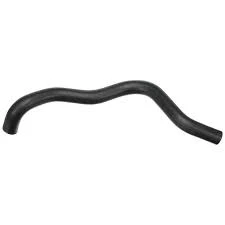e85 fuel line
നവം . 13, 2024 15:07 Back to list
e85 fuel line
Understanding E85 Fuel Lines Essential Considerations for Flex-Fuel Vehicles
In recent years, the automotive industry has seen a significant shift towards sustainable fuel alternatives, with E85 ethanol becoming increasingly popular. E85 is a fuel blend that consists of 85% ethanol and 15% gasoline, known for its higher octane rating and potential to reduce greenhouse gas emissions. However, if you are considering using E85 in your vehicle, one critical aspect to understand is the compatibility of E85 fuel lines.
What Are E85 Fuel Lines?
E85 fuel lines are specifically designed to transport E85 fuel from the tank to the engine. Unlike standard gasoline fuel lines, which are made to handle conventional gasoline, E85 fuel lines are crafted from materials resistant to the corrosive effects of ethanol. Ethanol can be more aggressive than gasoline, leading to potential degradation of standard fuel lines and other components.
Why Use E85?
E85 offers several advantages for those who prioritize performance and environmental sustainability. The higher ethanol content typically results in better combustion efficiency, leading to increased horsepower in flex-fuel vehicles. Additionally, using E85 can lower the carbon footprint of your vehicle, as ethanol is a renewable resource that can be produced from agricultural products.
Furthermore, the use of E85 can contribute to energy independence by reducing reliance on oil imports. When enough consumers choose E85, it can lead to a greater demand for domestically produced biofuels, positively impacting local economies.
Compatibility Considerations
Owning a flex-fuel vehicle (FFV) means that the vehicle is designed to run on any blend of gasoline and ethanol up to E85. However, it’s vital to ensure that all components in the fuel system, including fuel lines, are compatible with E85.
Many vehicles manufactured after the 2000 model year are already equipped with E85-compatible fuel lines. These lines are typically made from fluoropolymer or other materials designed to withstand the corrosive nature of ethanol. If you're driving an older vehicle or a standard gasoline vehicle, you will need to check the fuel line material before switching to E85. Using incompatible fuel lines can lead to leaks, cracks, and other serious maintenance issues.
e85 fuel line

Signs of Compatibility Issues
If your vehicle is not equipped with proper E85 fuel lines and you choose to use E85 fuel, you may start to notice several issues. Common symptoms of compatibility problems may include
1. Fuel Leaks A clear indication that your fuel lines cannot handle E85 is the presence of fuel leaks. If you notice a gasoline smell or dripping fuel under your vehicle, immediate inspection is necessary.
2. Performance Issues Incompatibility can lead to reduced performance, including rough idling, stalling, or decreased power. Ethanol’s different combustion characteristics can affect engine performance if not correctly managed.
3. Corrosion Over time, non-E85 compatible lines may corrode, leading to premature failure. This corrosion can also affect other fuel system components, leading to costly repairs.
Installation of E85 Fuel Lines
If you are planning to switch to E85, installing E85-compatible fuel lines should be one of your first steps. While it is possible for experienced DIY enthusiasts to replace the fuel lines themselves, consulting with a professional mechanic ensures that the installation is done correctly and safely. A professional can also inspect other components of your fuel system, such as injectors and the fuel pump, to determine their compatibility with E85.
Conclusion
E85 fuel presents an exciting option for consumers looking to combine enhanced vehicle performance with environmental stewardship. However, understanding E85 fuel lines' compatibility is essential. Always verify whether your vehicle's fuel system can handle the change before making the switch. By using E85-compatible components, you can take full advantage of ethanol's benefits while protecting your vehicle's integrity and performance. Awareness of these considerations will ensure that you enjoy a safe and efficient driving experience, contributing positively to the evolving landscape of alternative fuels.
